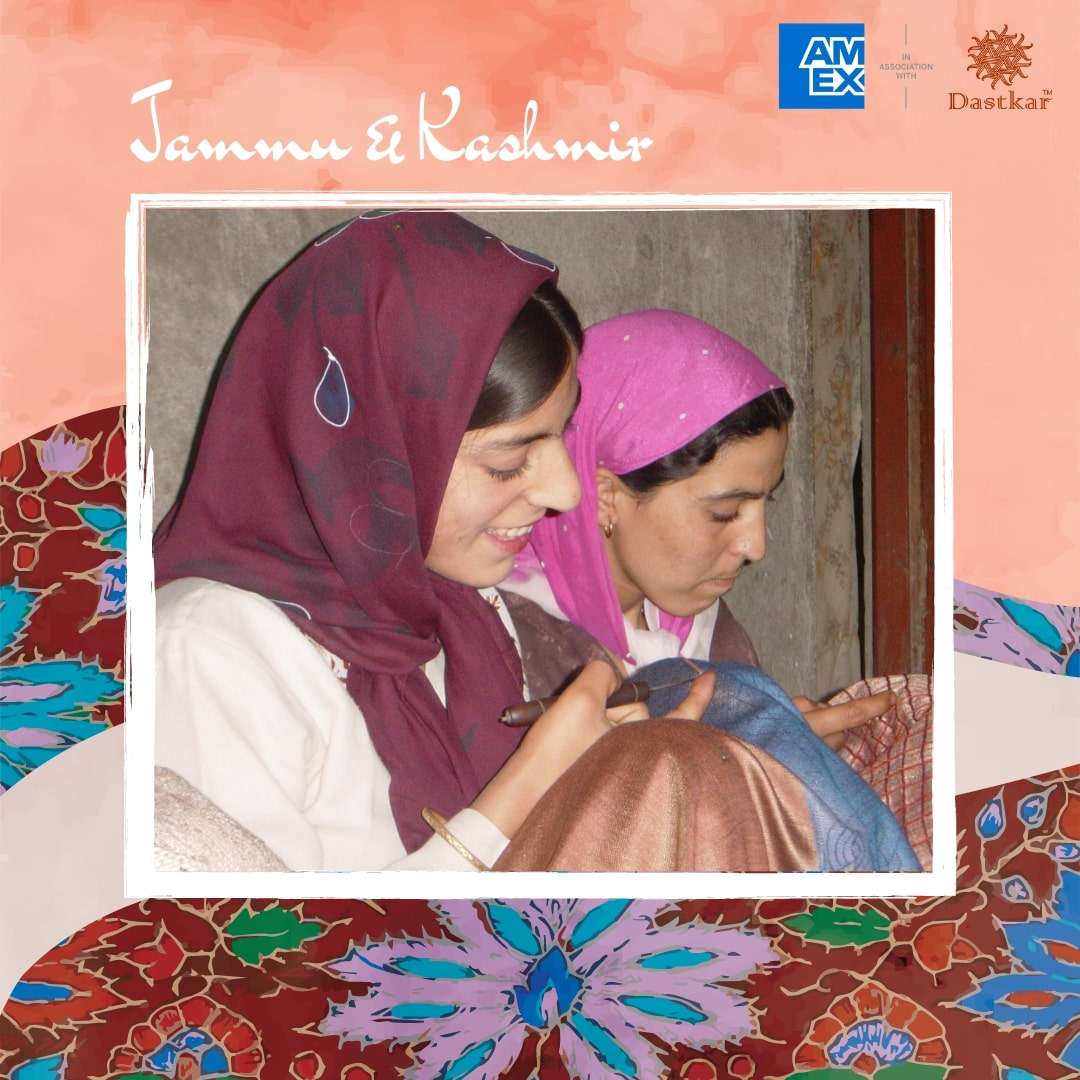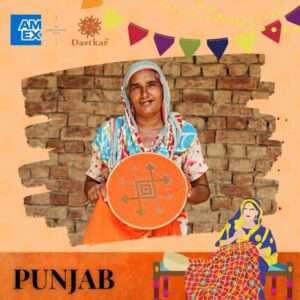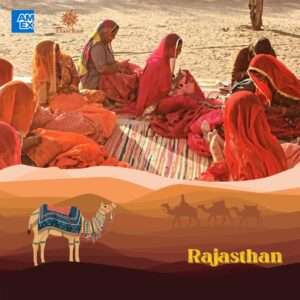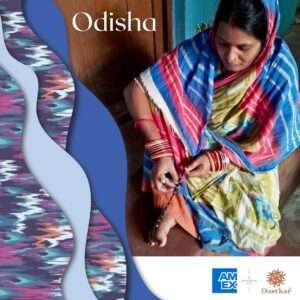Jammu and Kashmir has a rich history of crafts – integral to its economy, culture and aesthetic. Almost every family in the Valley has at least one or two members engaged in either making or selling craft. It is a part of India that contains every possible hand skill – from intricate kani and pashmina weaving and wood carving, to minute, exquisite embroideries like sozni and ariwork, the glitter of tilla work zari stitchery matched by that of embossed and etched copper-ware. The coarse warmth of felted namdas are contrasted by piled silk carpets of hundreds of knots per square inch. Local flora and fauna painted with incredible delicacy on Papier mache ornament everything from screens to Christmas tree decorations, and Khatambund geometrics embellish ceilings. Leather work, silver jewellery, and silk are other traditional skills, while the miniature paintings of Jammu and the wool knits and weaves of Ladakh are famous. Traditionally men have been the master craftsmen, but women have always been part of the process. Now they are taking a more active role, both as craftspeople and entrepreneurs.
Sadly, unrest, insurgency and punitive lockdowns have threatened this traditional profession. Economic support has been limited. Covid has added another blow. Through the AMEX DASTKAR grant we hope to revive the state’s vibrant crafts landscape by providing funds to a new generation of Kashmiri craftswomen; infusing traditional craft practices with a new dynamic ensuring production and marketing.
One such organisation that AMEX-Dastkar Grant helped in the Valley is Naie Kiran Shawl Embroidery Works. NAIE KIRAN, an organisation for women empowerment, is based in Pattan and Sopore in the Baramulla District of Kashmir. Dastkar formed an association with NAIE KIRAN in 2004 as a part of the Kashmir Project. This initiative aimed to help women who are victims of terrorism in Baramulla District, Kashmir. The initiative has helped them become more independent, their resilience and strength got them through the worst of times.
Dastkar’s skill training, design, and marketing inputs empowered approximately 50 women. The products created by them found their way to Dastkar’s bazaars which laid the foundation for a long-lasting relationship between the two organisations.They do Ari, Papier Mache, and Sozni embroidery on fabrics like Chanderi, Maheshwari, Tussar, etc. and make beautifully embroidered sarees, stoles, dupattas, phirans, and kurtas.
Many artisans of Naie Kiran were majorly impacted by the sudden lockdown as their livelihood was stripped away from them for a period. One such case was of an artisan, whose husband lost his job due to COVID-19. She was falling short of savings to support her household and her children’s education. This is where the funds given by American Express via Dastkar’s Artisan Support served as a saving grace for her and other such craftswomen.
Zahida, the cornerstone of Naie Kiran says, “All of us at Naie Kiran are extremely grateful for all the help American Express and Dastkar provided us as the funds not only helped us sustain our craft but our livelihoods as well”. The funds were not only used to pay unpaid wages and dues and were additionally used to procure raw materials from various regions.





